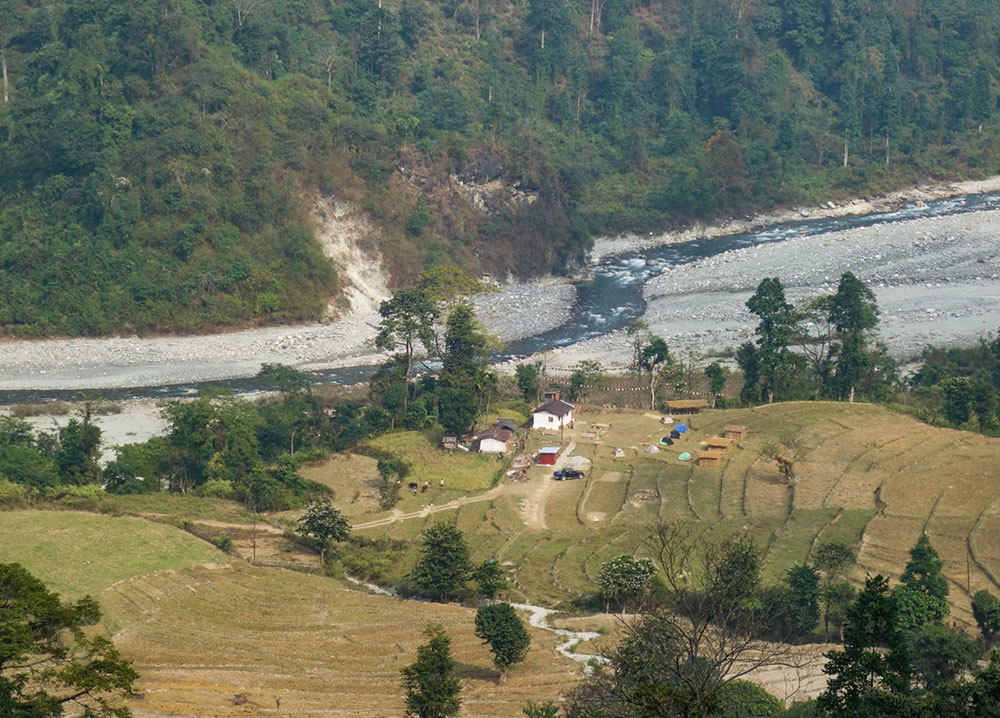1950s—A day like any other, Shadho Madho springs back to life, bustling with activity. Negotiations ensue for essentials like rice, butter, cheese, meat, salt, tobacco, and areca nuts.
Shadho Madho met its demise slowly. Once a vibrant trading hub, its name loosely translating to “Loads of meat and butter” in western Bhutan, it gradually faded into obscurity. Locals attribute its decline to the construction of Bhutan’s inaugural national highway and the subsequent commercialization of trade a decade later.
Despite being just 6.5 kilometers away from the border town, Shadho Madho, now corrupted to Tshado Mado in Pachu chiwog, stands as a solitary outpost of history. This once bustling village has transformed into a quaint farming community, home to only 70 elderly residents living in 22 houses.
Amidst the vast terrace of paddy fields, the houses appear as tiny dots, with the snaking Pachu River gliding by in the distance. Peacocks roam freely, coexisting with the villagers in this serene setting. However, the tranquility is tinged with melancholy as the young have departed the village in search of opportunities in Phuentsholing Town, leaving behind a quiet emptiness.
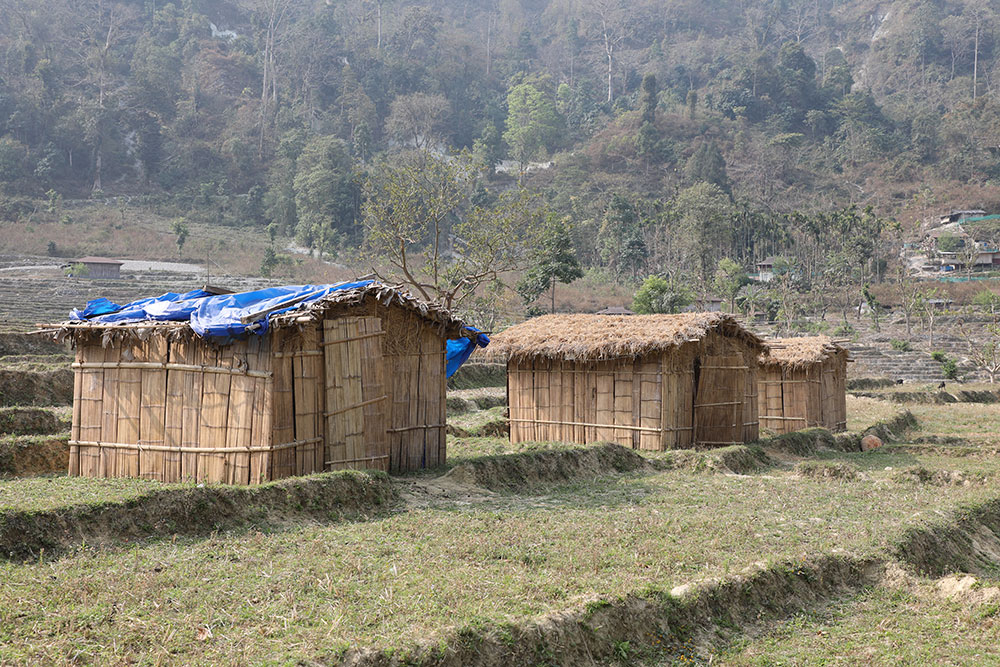
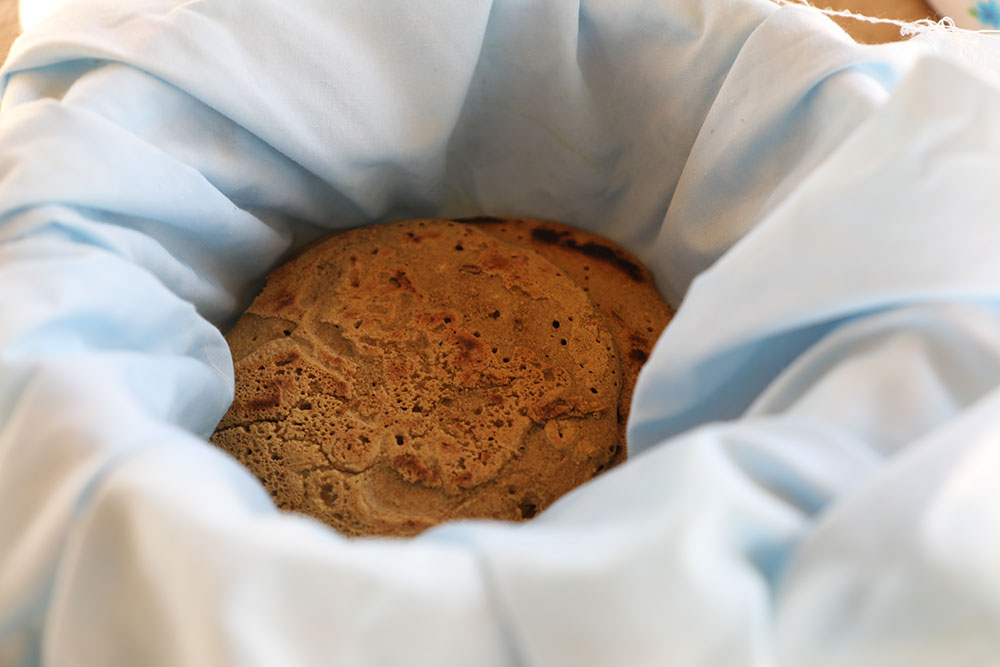
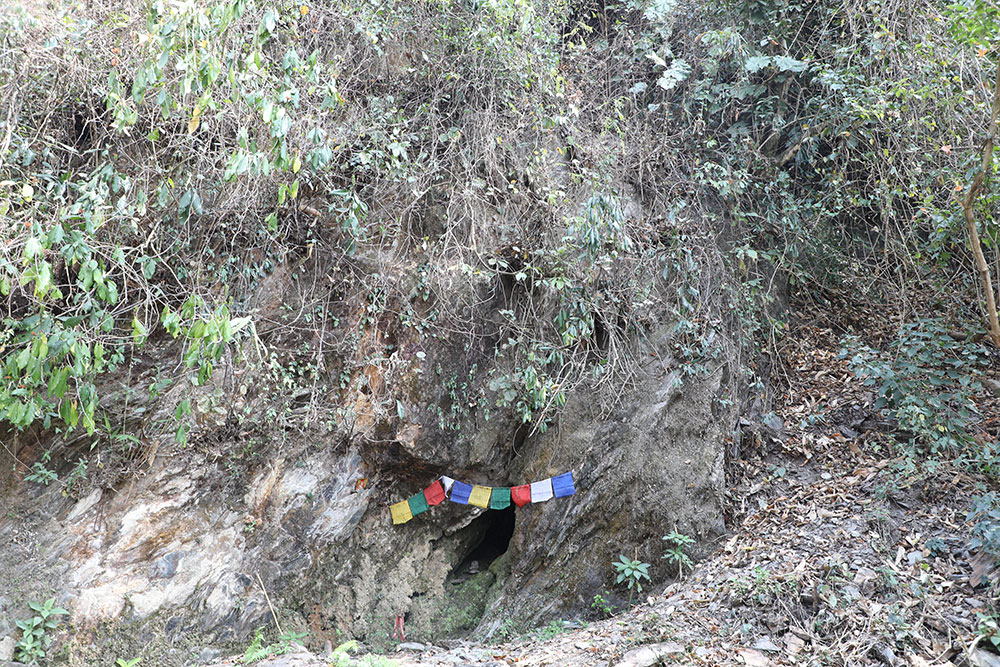
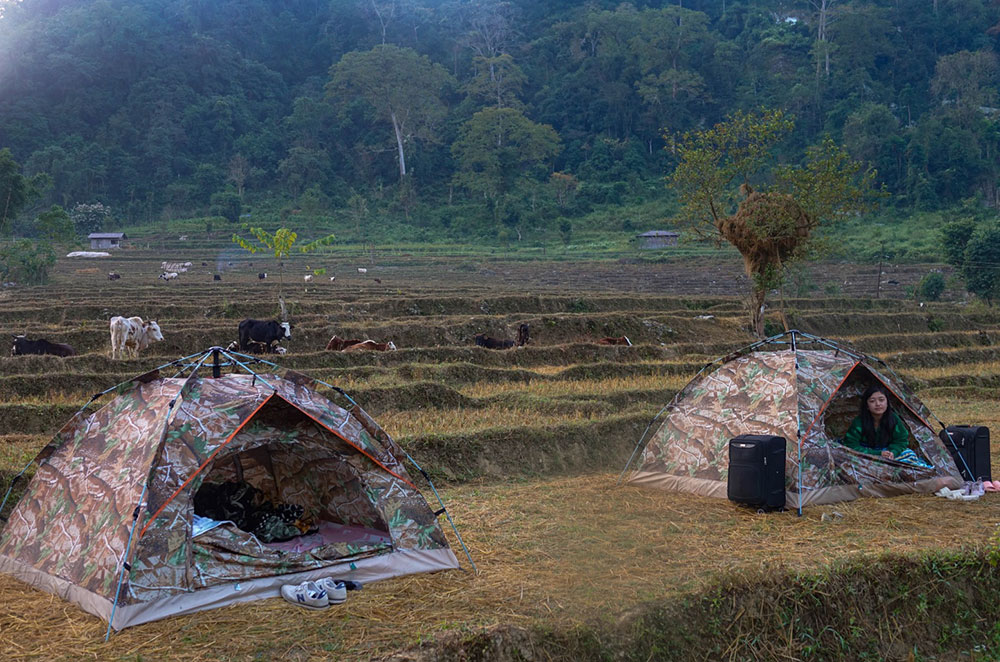
Nado, 35, along with seven friends, is determined to rewrite the story. These young individuals from Dargaygang and Pachu have united to establish the Pachu Community Tourism. Launched in November last year, this initiative aims to promote agro-tourism and provide a peaceful getaway for residents of Phuentsholing town and visitors from across the nation.
“I am thrilled to embark on this venture in my community. It holds the promise of revitalising Pachu’s vibrant history,” said Nado.
Covering an expansive two acres of land, the site has four charming thatched huts and tents, offering visitors a complete immersion in local culture and landscapes. Plans are underway to lease five acres of State land to expand and develop the site into an even larger site.
As the sun sets, the rhythmic beats of traditional musical instruments resonate through the evening air. The Pachu Cultural Troupe takes centre stage, enchanting visitors with their vibrant songs and dances around the crackling campfire. Meanwhile, guests sip on tongba (local alcoholic drink), immersing themselves in the local flavours and traditions.
As the night deepens, the distant calls of nocturnal birds blend harmoniously with the tranquil ambiance, creating an unforgettable experience.
Recently, the Phuentsholing Gewog Administration endorsed the tourism site as a Community-Based Organization, recognising its positive impact and contribution to the local community. With this endorsement, the site has gained even more credibility and support. The site has already welcomed over 400 visitors.
Nado feels they need to do more. “We aim to provide optimal local experience,” said the high school graduate. Currently, the group is providing the food and other related services at the camp.
Nado believes there is more they can do to enhance the local experience. “We aspire to offer the ultimate local experience,” said Nado. Presently, the group is not only providing accommodation but also food and other related services at the camp to ensure guests have a truly authentic and immersive experience of the region.
One of the group members, Pem Lham, takes charge of preparing the locally-grown food, infusing each dish with the flavors of the region. The group is dedicated to ensuring that the benefits of their tourism initiative extend to the local communities. By sourcing ingredients locally and engaging with nearby villages, they contribute to the economic growth and sustainability of the area, fostering a sense of shared prosperity among all involved.
The group has ambitious plans to become fully green or environmentally friendly. They have already taken steps towards this goal by gradually reducing the use of bottled water at the site. Recognising the growing concern over plastic waste, they are addressing this issue to minimise their environmental footprint. By implementing eco-friendly practices and promoting sustainability, they aim to create a greener and more responsible tourism destination for the benefit of both visitors and the local environment.
Looking ahead, the group envisions their agro-tourism site as a place where visitors can immerse themselves in the farming experience. They plan to offer hands-on activities such as paddy cultivation, harvesting, and pond fishing, allowing guests to connect with the land and its traditions in a meaningful way. By offering these authentic experiences, they aim to create lasting memories for visitors while also promoting a deeper understanding and appreciation of rural life and agriculture in the region.
The members have contributed funds to invest in the necessary infrastructure development at the site. Chhukha Dzongkhag Administration is lending support by co-financing the construction of an eco-lodge on a cost-sharing basis.
Works are underway to construct a fishery pond and develop a hot stone bath nearby to offer guests a relaxing and therapeutic experience amidst the natural beauty of the surroundings.
To sustain the project, the group members have sought fund support from Chhukha dzongkhag and Phuentsholing gewog administration to build fencing of the area and to build one ecolodge. They have also executed a Memorandum of Understanding with the community tourism operators in the border areas and in Jhaldapara in India for marketing and linkages.
Preliminary discussions are underway to establish a Butterfly garden at the tourism site in collaboration with Nature Mates, an NGO based in Delhi to create a vibrant habitat for butterflies, enhancing the biodiversity and ecological appeal of the area.
Funds are being sought from related organisations.
If successful, the project will benefit about 150 households of Shadho Madho and Dargaygang in Pachu. It is including the Pachu Cultural Troupe from the adjacent Kami Dara village.
The Pachu Community tourism site was initiated with the support from Economic Development sector of Chhukha dzongkhag administration and Phuentsholing gewog administration with support from Bhutan Chamber of Commerce and Industry’s regional office.
Contributed by
Choki Wangmo


